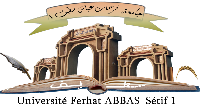الخطوط العريضة للقسم
-
Discribtion
Only the central theme of the course is suggested, the teacher is free to choose the content of the texts to be given to students. Texts should be between 200 and 400 words long. Hence, each unit needs to be dealt with over 2 sessions with 45 minutes devoted to content and 45 minutes to language and grammar structures.
General objective
this courses objective is to know economics .
Operational objectives
After going through the lecture students will be able to
- Talking about leisure and hobbies at the workplace
- Define Economics
- Define Commerce
- Define Finance
- Define Management
- Define Acounting
- Define Marketing
-
-
Greetings and introductions are the first thing we do when we meet people or someone new. In this lesson the students will learn how to greet, introduce and say goodbye to someone whether in a formal or informal way. (Formal: is more polite and used if we don’t know the person. Informal: is used when talking to friends or persons we know very well!).
-
-
-
-
Business meetings are essential for team working and getting things done in the organizations. A business meeting is a gathering of two people or more for the purpose of discussing business matters and making decisions related to these matters in the company. Business meetings are generally conducted face to face in an office. However, with the rise of video-conferencing technologies, participants can join a meeting from anywhere. In this lesson students will learn the basic vocabulary related to business meetings, and they will identify and understand the different processes or steps in holding a meeting.
-
-
-
-
As most people working in Accounting, finance, banking, commerce, etc. spend a lot of time dealing with numbers, it is important to train students practice in the foreign language. In this lesson students will learn how to say numbers correctly especially when dealing with amounts of money and they will know some main differences between American English (AmE) and British English (BrE) in saying and writing numbers.
-
The Present Simple Tense
Time Expressions with: in, on, at
(Exercises)
-
-
-
We’re living in a world where business, education, shopping, traveling, and many other daily life activities depend on money. Money is one of the most important parts of our life. It allows individuals and households to meet their needs and enterprises to do business. In this lesson students will know the meaning of money and currency, its main forms and functions, and will learn how to measure money supply in an economy.
-
The Past Simple Tense
Demonstratives: this, that, these, those
(Exercises)
-
-
-
We all have many jobs or work to be done in our life. Some are activities done because of our responsibilities towards employers, family, friends or even for ourselves. Some are jobs which are performed in exchange for payment. In this lesson students will understand the meaning of the two terms ‘work’ and ‘job’ and the main differences between them, and will know the different ways of working. They will also learn the essential vocabulary related to the topic, and they learn how to ask about someone’s job and how to describe it.
-
-
-
-
introduction to economics
and the different sectors of economy
-
Introduction to commerce
The nature of commerce and the meaning of brand and branding
-
Types of businesses
Stocks & shares
Banking
